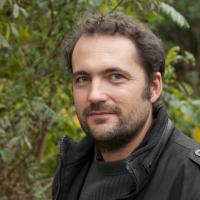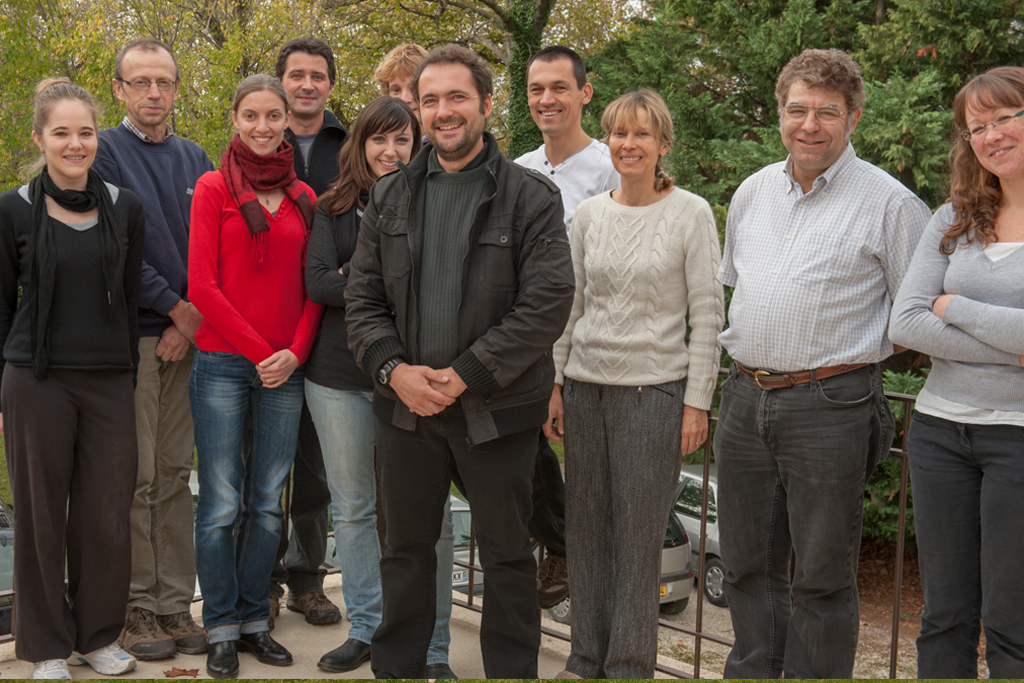
Biodiversity Reading time 6 min
Mickaël Henry, the buzz behind the bee
Published on 02 December 2013
Deciphering animal behaviour
Mr Henry has spent many a night deep in the Cayenne jungle, monitoring the behaviour of dozens of bats with the help of micro-transmitters. His goal: to follow the animals and watch their every move in all stages of the life cycle. This involved laying and monitoring a dense network of seed traps, collecting the mammals on a massive scale, and delving into mountains of statistics to assess in real time bats’ role in the dispersion of seeds and regeneration of tropical forests. Mission impossible? Not for Mickaël Henry. Undaunted, the researcher spared no effort and embraced new experimental approaches to advance knowledge of animal behaviour. What he learned about bats he now applies to bees in his research at INRA.
Batman
As a young student, Mr Henry quickly strayed from the beaten track. His passion for behavioural ecology brought him to Canada where he earned both undergraduate and graduate degrees in landscape ecology and population biology. There he won an award for academic excellence. A nomad at heart, Mr Henry won the Zellidja prize at 19 for two ethnographic studies on insularity. From 1998 to 2009, the globetrotting researcher pursued his study of tropical bats, “a key biological model for ecosystems”, in warmer climes: a doctoral degree in French Guiana led to post-doctoral studies in Mexico, followed by further research in Panama and Martinique. Tech-savvy and nimble with numbers, he developed original telemetric tools in his research on bats and, at INRA, on bees. Although the creative type, numbers do not scare him: “Ecosystems are unpredictable and ever-changing, making for messy statistics. Ecologists must find some consistency in this natural variability”. Mr Henry hasn’t wasted a minute. He presented his first research results in conferences and symposiums at 21, published his first article at 23, and went on to organise international colloquiums on bats. He is now a world reference on the ecology of bats after only ten years of research on the subject. In 2008, the Association for Tropical Biology and Conservation awarded Mr Henry for his outstanding work.
Like the animals he studies, Mr Henry has now returned to the nest: in his case, France. He joined INRA in Avignon in 2009 to study bees in agricultural environments. Bees form communities that share a common nest and use the same centralised provision strategy as bats. Bringing his expertise in behavioural ecology to the table, Mr Henry works with colleagues in the entomology unit at Le Magneraud, CNRS (Chizé) and technical institutes ACTA and ITSAP, to study the causes of the decline of bees in agricultural environments. The researchers place RFID chips on bees previously administered a pesticide, to show how this alters behaviour and hinders the insects from returning to the hive, resulting in indirect mortality. The effect of pesticides on bees returning to the hive published in the journal Science in 2012 led to the withdrawal of the pesticide Cruiser from the market and prompted a re-evaluation of approval procedures for neonicotinoids.
The queen bee finds her king
Mickaël Henry finds the time to make his work accessible to a wider audience, not limiting publications to professional and scientific media alone. He followed up the article published in Science with other publications geared toward professionals but also the public at large. In 2013, he and his team won a prize from the scientific journal La Recherche in the biology category for the aforementioned publication which had a major impact on the use of some common pesticides at both national and international level. With some 20 articles and 40 conferences and scientific posters behind him, Mr Henry continues his targeted research on the impact of landscape disturbances and changing environmental conditions on bees. In addition to his studies, in 2011 he co-founded Ecobee with CNRS colleagues at Chizé and the Entomology unit in Le Magneraud. Ecobee is a platform that allows scientists to monitor bee hives and explore how agricultural practices affect the ecology of the insects in agrosystems.

“For me, INRA is a great place to work, open to new ideas and people with non-conventional backgrounds. I feel good here because people believe in my research.”
